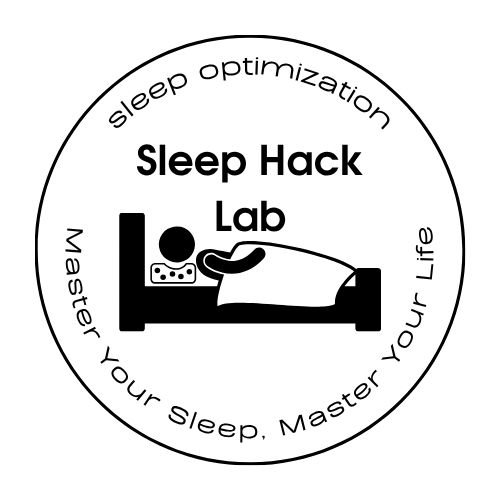Irregular schedules wreak havoc on your circadian rhythm, disrupting cellular function and DNA repair processes that protect your health. You’ll experience compromised sleep quality as melatonin production becomes altered, increasing your risk of chronic diseases including cancer, cardiovascular problems, and Type 2 diabetes. Your mental health suffers too, with heightened anxiety and depression from social isolation and chronic stress. These effects compound over time, creating cascading health problems that affect every system in your body and understanding the full scope reveals essential protection strategies.
The Science Behind Circadian Rhythm Disruption

When you work irregular hours, your body’s internal clock—known as your circadian rhythm—struggles to maintain its natural 24-hour cycle. This disruption affects your cellular function and compromises your body’s ability to repair DNA damage effectively.
If you’re engaged in shift work, you’ll likely experience altered melatonin production, which prevents you from achieving sufficient deep sleep. This sleep deprivation leads to DNA damage accumulation over time, increasing your risk of developing chronic diseases, including cancer.
The constant disruption of circadian rhythms also elevates your stress hormones, directly impacting your mental health. You’re more susceptible to anxiety and depression when your body can’t regulate its natural sleep-wake cycle properly.
Physical Health Consequences of Unpredictable Work Hours
Although the mental health impacts are serious, the physical toll of irregular work schedules extends far beyond sleep deprivation.
Your cardiovascular system bears significant strain when you work rotating night shifts, with research showing women face higher mortality rates from heart disease and stroke after five years of such schedules.
Irregular work hours disrupt your digestive system, triggering gastrointestinal disorders like IBS and chronic constipation.
Your metabolism suffers as hormonal imbalances increase obesity and Type 2 diabetes risks.
Perhaps most alarming, chronic sleep deprivation from unpredictable schedules causes DNA damage that elevates cancer risk through reduced melatonin production.
These severe physical health consequences demonstrate how irregular schedules systematically compromise multiple bodily systems, creating cascading health outcomes that extend far beyond simple fatigue.
Mental Health Impact and Stress-Related Disorders

When you’re stuck with irregular work schedules, you’re putting yourself at considerably higher risk for depression and anxiety disorders.
Your unpredictable hours don’t just mess with your sleep—they create chronic stress that can damage your relationships and leave you feeling socially isolated.
The constant uncertainty about when you’ll work next amplifies these mental health challenges, making it harder to maintain the social connections that normally help protect your psychological well-being.
Depression and Anxiety Risk
Because your work schedule changes unpredictably, you’re considerably more likely to develop depression and anxiety than workers with regular hours.
Studies reveal that individuals with nonstandard shifts experience markedly increased psychological distress compared to those maintaining consistent schedules.
Your irregular schedules create multiple pathways to mental health deterioration. You’ll likely face sleep disruption, with 20-30% of shift workers experiencing insomnia that feeds into a destructive cycle of declining emotional well-being.
The frequency of your shift changes directly correlates with higher rates of depression and anxiety disorders.
Financial instability compounds these issues, as unpredictable hours make managing expenses difficult, creating additional stress.
Your social connections suffer too, as nonstandard work arrangements limit relationship building and increase isolation, further elevating your risk of developing serious mental health conditions.
Social Isolation Effects
Your irregular work schedule doesn’t just affect your mood—it systematically isolates you from the social connections that protect your mental health.
When you’re working nights or rotating shifts, you can’t maintain regular social activities or relationships because your availability conflicts with friends and family. This social isolation creates a cascading effect on your wellbeing.
Without stable social environments, you’ll experience increased loneliness and diminished belonging.
Research shows 20-30% of shift workers develop insomnia and sleep problems, worsening isolation’s impact. The psychological distress from irregular work schedules considerably increases anxiety and depression symptoms.
You’re trapped in a vicious cycle where compromised mental health reduces social interactions, which further deteriorates your overall wellbeing and perpetuates the isolation.
Sleep Quality Deterioration and Long-Term Effects
Although you mightn’t notice the immediate impact, irregular work schedules systematically destroy your sleep quality and create cascading health problems that persist for decades.
When you’re forced to work nonstandard hours, your body can’t establish consistent sleep patterns, leading to insomnia and chronic sleep deprivation. This deterioration becomes particularly devastating if you shift from regular 9-to-5 work to volatile scheduling – you’ll experience the worst health outcomes of all shift workers.
The long-term consequences extend far beyond feeling tired. By age 50, you’ll likely face diminished physical and mental functions.
Your risk for cardiovascular disease, metabolic disorders, and mental health issues increases considerably. Poor sleep quality from irregular schedules also amplifies anxiety and stress, creating a vicious cycle that compounds these health problems over time.
Demographic Groups Most At Risk

While irregular schedules damage everyone’s health, certain demographic groups face disproportionately severe consequences that compound existing social inequalities.
If you’re part of these vulnerable populations, you’ll likely experience more severe health impacts from unpredictable work schedules:
- Black Americans and minorities – You’re more likely to work irregular schedules that worsen existing health disparities and limit access to consistent healthcare.
- Women, especially mothers – Despite getting more sleep hours, you’ll experience poorer sleep quality and face greater childcare challenges when your schedule changes unexpectedly.
- Low-income workers – You’re most vulnerable to last-minute schedule changes, with over half receiving less than two weeks’ notice, creating chronic stress and uncertainty.
These demographic patterns reveal how irregular scheduling perpetuates broader social inequities while undermining your fundamental right to health and stability.
Effective Strategies for Mitigating Health Risks
You can greatly reduce the health risks of irregular schedules by implementing targeted strategies that address your body’s core needs.
Optimizing your sleep environment through blackout curtains, white noise machines, and consistent sleep rituals will help you achieve better rest regardless of when you’re sleeping.
Building strong support networks with family, friends, and coworkers who understand your schedule challenges creates an essential safety net for managing stress and maintaining your mental health.
Sleep Optimization Techniques
Five key strategies can help you minimize the health damage caused by irregular work schedules, starting with your sleep habits.
Enhancing your sleep patterns requires deliberate effort, but it’ll greatly improve your health outcomes later.
Here are three essential sleep enhancement techniques:
- Establish consistent sleep and wake times – Even with irregular schedules, maintain the same bedtime and wake-up time to regulate your internal clock and improve sleep quality.
- Create an ideal sleep environment – Use blackout curtains and minimize noise to enhance sleep conditions, allowing for deeper, more restorative rest.
- Practice pre-bedtime relaxation techniques – Engage in mindfulness meditation or deep breathing exercises to reduce stress and anxiety before sleep.
Additionally, limit screen exposure one hour before bed and avoid late-night eating to support better sleep changes.
Building Support Networks
Although irregular schedules can create feelings of isolation and stress, building strong support networks serves as an essential buffer against these negative health effects.
You’ll find that connecting with family and friends greatly reduces anxiety while improving your mental health outcomes. Engaging in social activities helps combat the isolation that nonstandard work hours often bring, boosting your overall well-being.
Regular check-ins with peers or support groups provide emotional reassurance and practical coping strategies.
You can build routines around your shifts that include social time, facilitating healthier lifestyle habits like balanced meals and exercise.
Don’t overlook community resources such as workshops or counseling services—they’ll enhance your resilience and equip you with valuable tools for managing unstable work hours.
Frequently Asked Questions
What Are the Effects of Improper Scheduling?
You’ll experience poor sleep quality, increased depression risk, chronic sleep deprivation, and heightened anxiety. Your diet and exercise habits deteriorate, while financial stress mounts, creating health effects comparable to unemployment.
Are Rotating Shifts Bad for Your Health?
Yes, rotating shifts considerably harm your health. You’ll face increased risks of sleep disorders, depression, anxiety, cardiovascular disease, and metabolic problems. They disrupt your circadian rhythms, affecting cellular functions and potentially increasing cancer risk.
How Does Your Daily Schedule Affect Your Health?
Your daily schedule directly impacts your sleep quality, mental health, and physical well-being. Consistent routines help regulate your body’s natural rhythms, while irregular patterns can disrupt healthy habits and increase stress levels.
Is an Inconsistent Work Schedule Bad?
Yes, you’ll likely experience worse sleep quality, increased depressive symptoms, and higher risks of obesity and cardiovascular disease. Your physical and mental functions decline considerably with unpredictable work hours.





Leave a Reply